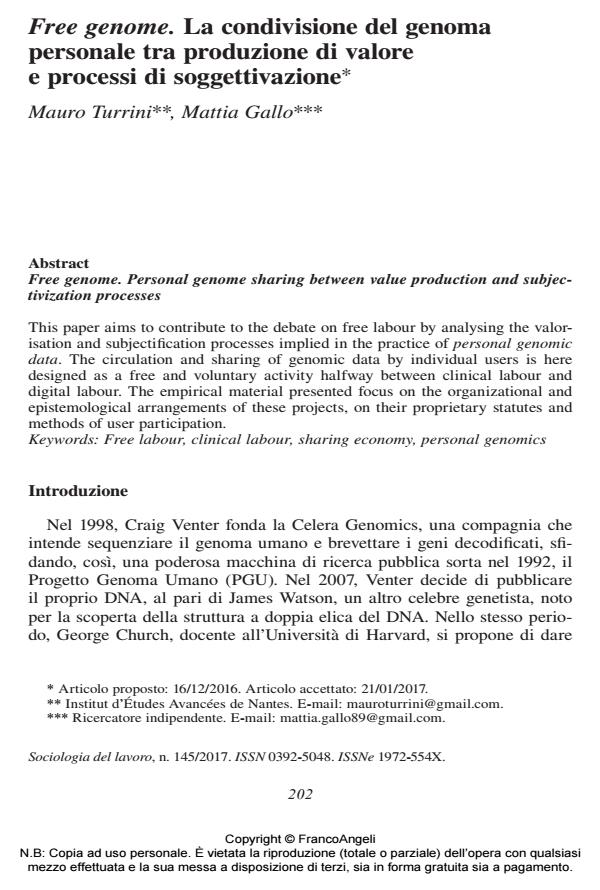Free genome. Personal genome sharing between value production and subjectivization processes
Journal title SOCIOLOGIA DEL LAVORO
Author/s Mauro Turrini, Mattia Gallo
Publishing Year 2017 Issue 2017/145
Language Italian Pages 17 P. 202-218 File size 124 KB
DOI 10.3280/SL2017-145012
DOI is like a bar code for intellectual property: to have more infomation
click here
Below, you can see the article first page
If you want to buy this article in PDF format, you can do it, following the instructions to buy download credits

FrancoAngeli is member of Publishers International Linking Association, Inc (PILA), a not-for-profit association which run the CrossRef service enabling links to and from online scholarly content.
This paper aims to contribute to the debate on free labour by analysing the valorisation and subjectification processes implied in the practice of personal genomic data. The circulation and sharing of genomic data by individual users is here designed as a free and voluntary activity halfway between clinical labour and digital labour. The empirical material presented focus on the organizational and epistemological arrangements of these projects, on their proprietary statutes and methods of user participation.
L’articolo intende contribuire al dibattito sul free labour a partire dalle filiere del valore e dai processi di soggettivazione nell’ambito della produzione e del-la condivisione di dati genomici personali. La circolazione e la condivisione dei dati genomici da parte di singoli utenti viene qui studiata come una attività gratui-ta e volontaria a metà strada tra il lavoro clinico e il lavoro digitale. I materiali empirici presentati si focalizzano sulle strutture organizzative ed epistemologiche di questi progetti, in particolare sul loro statuto proprietario e sulle modalità di par-tecipazione degli utenti.
Keywords: Free labour, clinical labour, sharing economy, personal genomics
Mauro Turrini, Mattia Gallo, Free genome. La condivisione del genoma personale tra produzione di valore e processi di soggettivazione in "SOCIOLOGIA DEL LAVORO " 145/2017, pp 202-218, DOI: 10.3280/SL2017-145012